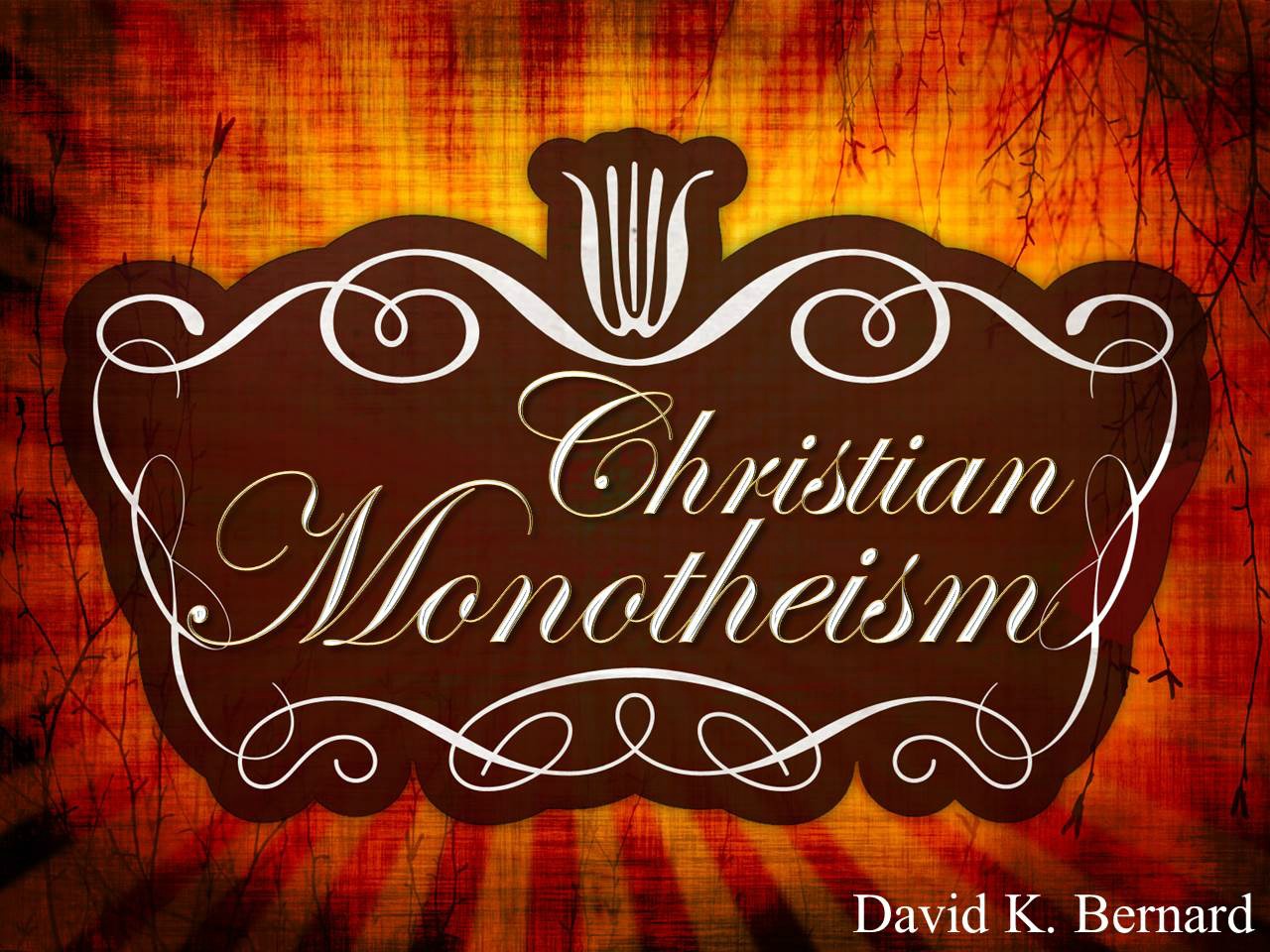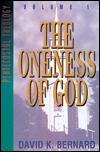Today, God still demands a monotheistic worship of Him. We in the church are heirs of Abraham by faith, and this exalted position demands that we have the same monotheistic faith in the God of Abraham (Romans 4:13-17). As Christians in the world we must never cease to exalt and declare the message that there is only one true and living God.

By David Bernard
To View the Entire Article, Click Here
To Download the Entire Article Directly to Your Computer, Click Here
To View the Outline, Click Here
To View the PowerPoint, Click Here
“Hear, O Israel: the LORD our God is one LORD” (Deuteronomy 6:4). “God is one” (Galatians 3:20).
There is one God. There is only one God. This doctrine is central to the Bible message, for both the Old Testament and the New Testament teach it plainly and emphatically. Despite the simplicity of this message and the clarity with which the Bible presents it, many who believe in the existence of God have not understood it. Even within Christendom many people, including theologians, have not comprehended this beautiful and essential message. Our purpose is to address this problem, and to affirm and explain the biblical doctrine of the oneness of God.
Monotheism Defined
The belief in only one God is called monotheism, which comes from two Greek words: monos, meaning alone, single, one; and theos, meaning God. Anyone who does not accept monotheism can be classified as one of the following: an atheist—one who denies the existence of God; an agnostic—one who asserts that the existence of God is unknown and probably unknowable; a pantheist—one who equates God with nature or the forces of the universe; or a polytheist—one who believes in more than one God. Ditheism, the belief in two gods, is a form of polytheism, and so is Ditheism, the belief in three gods. Among the major religions of the world, three are monotheistic: Judaism, Islam, and Christianity.
Within the ranks of those labeling themselves Christian, however, there are several divergent views as to the nature of the Godhead. One view, called trinitarianism, asserts that there are three distinct persons in the Godhead—God the Father, God the Son, and God the Holy Ghost—but yet one God.
Within the ranks of trinitarianism, one can discern two extreme tendencies. On the one hand, some Trinitarians emphasize the unity of God without having a carefully developed understanding of what is meant by three distinct persons in the Godhead. On the other hand, other Trinitarians emphasize the threeness of the trinity to the point that they believe in three self-conscious beings, and their view is essentially tritheistic.
In addition to trinitarianism, there is the doctrine of binitarianism, which does not classify the Holy Ghost as a separate person but asserts belief in two persons in the Godhead. Many monotheists have pointed out that both trinitarianism and binitarianism weaken the strict monotheism taught by the Bible. They insist that the Godhead cannot be divided into persons and that God is absolutely one.
These believers in strict monotheism fall into two classes. One class asserts that there is only one God, but does so by denying, in one way or another, the full deity of Jesus Christ. This view was represented in early church history by the dynamic monarchians, such as Paul of Samosata, and by the Arians, led by Arius. These groups relegated Jesus to the position of a created god, subordinate god, junior god, or demigod.
To View the Entire Article, Click Here
To Download the Entire Article Directly to Your Computer, Click Here
To View the Outline, Click Here



